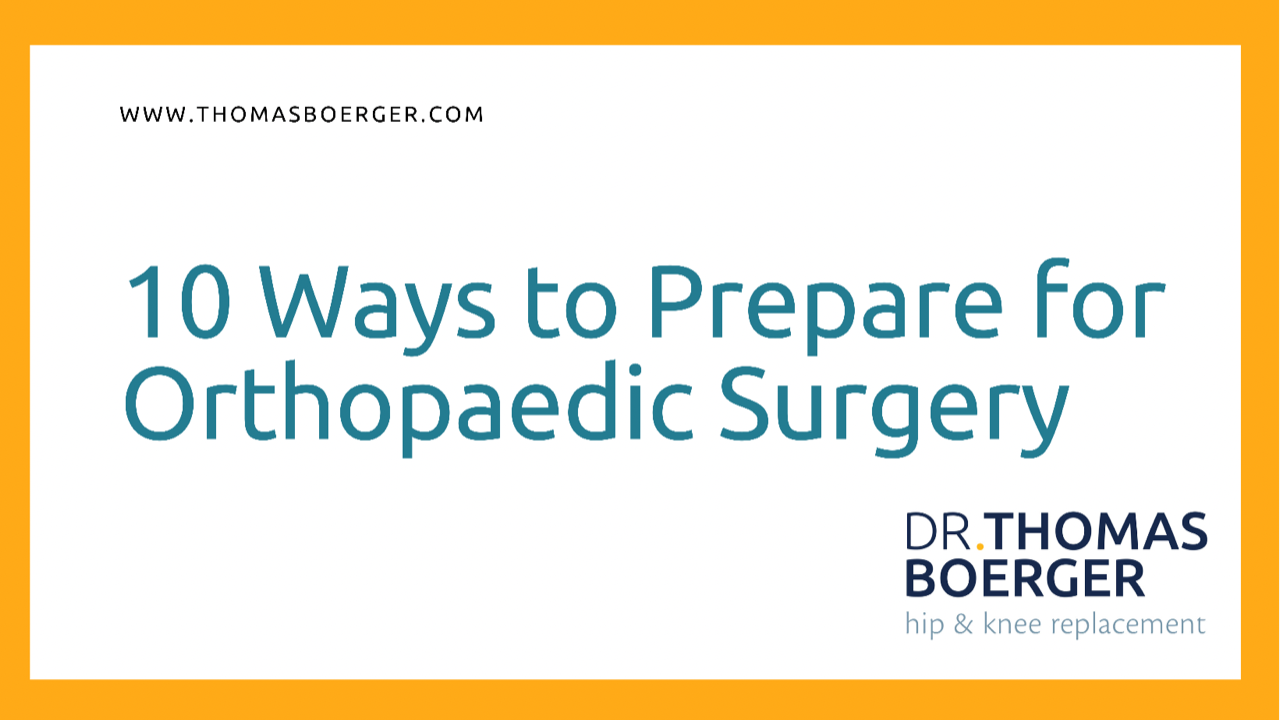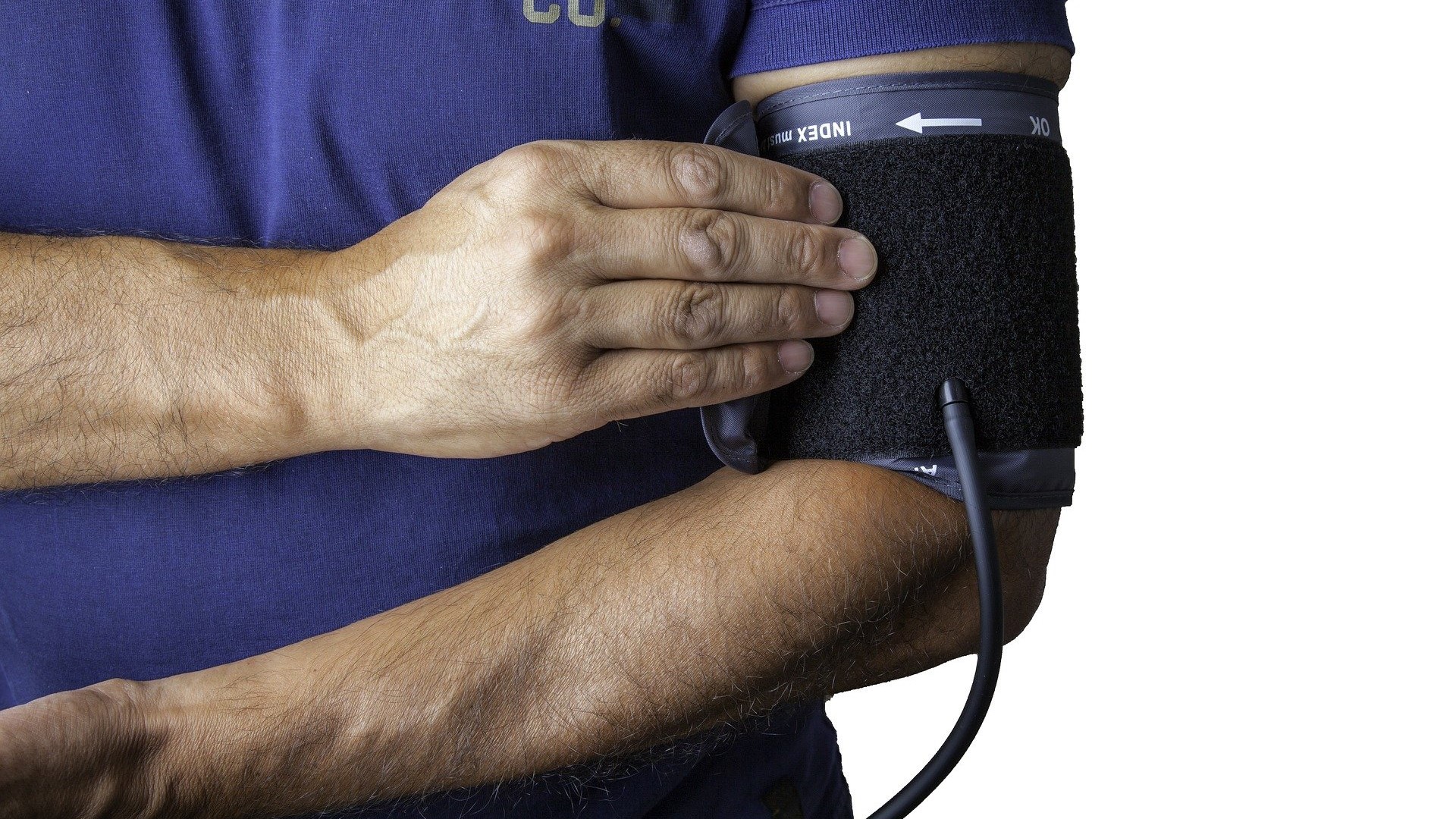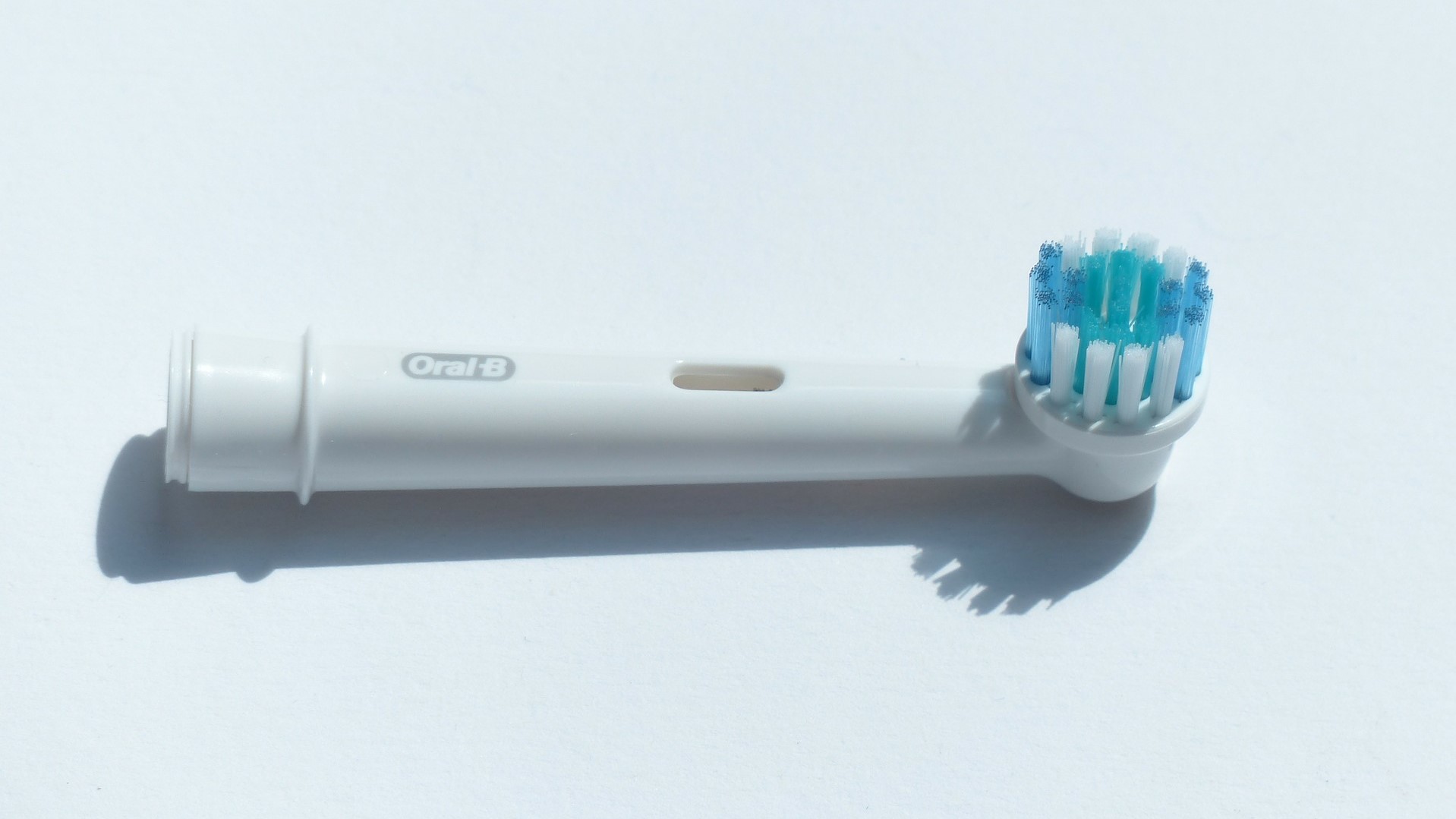
Comprehensive pre-operative preparation offers the best chances of a trouble free recovery. Here are my top tips for you to enhance your readiness for surgery and maximise the benefits from a successful procedure.
Hip and knee replacement can eradicate chronic pain and restore mobility. Independence may be regained and life resumes, to be enjoyed to the full. I am committed to make all these possible for you.
I’m Dr. Thomas Boerger (MD FRCSI (Tr&Orth) Consultant Orthopaedic Surgeon) and here are my ten ways on how to optimally prepare for surgery:
1. Stop Smoking

Smoking poses one the most significant threats to a swift recovery after surgery. It is imperative that patients stop smoking before surgery, ideally TWO months before the procedure. This affords faster wound-healing and reduces the risk of complications specifically wound infection. Tolerance of and recovery from the anaesthetic is by far better in non-smokers. The additional benefits of stopping smoking are worthy of an article in itself. Support for smoking cessation is available from your general practitioner, local pharmacist, and online support groups.
2. Maintain a Healthy weight

Excess weight puts extra pressure on the joints, which may already be inflamed and sore. A healthy weight also allows your vital organs to perform at their best, particularly relevant as your body is to undergo the stress of surgery. The rewards from achieving a healthy weight are worth the effort, however longer periods of starving directly before surgery must be avoided.
3. Reduce Stress
Stress can have an impact on physical health. Events such as family bereavement, moving house, job issues etc. are all triggers for stress, and at these times you should avoid having any elective surgery.
4. Boost Your Immunity
To accelerate successful healing, you want to have the best possible immune status. Eating well, getting plenty of sleep and remaining as active as your condition allows, are all straightforward and effective ways to give a welcome boost to your immune system.
5. Love Your Heart

If you suffer from uncontrolled blood pressure, angina, intermittent shortage of breath, or are aware of previous cardiac conditions such as cardiomyopathy, stenting, or by-pass surgery, you should have a cardiology review before surgery. Consider getting a dobutamine stress test or even cardiac angiogram to rule out coronary artery disease and other cardiac conditions.
6. Flash Your Smile

Go for a dental check-up and make sure your teeth and gums are healthy. There is considerable evidence that poor dental health has a detrimental effect on general health. Dental infections such as a gum abscess can increase the chances of prosthetic joint infection (PJI) following joint replacement surgery.
7. Treat Varicose Veins
Varicose veins are associated with venous reflux when the valves in the veins do not work allowing the blood to flow in the wrong direction. This increases the risk of clot formation, e.g. deep vein thrombosis and pulmonary embolism. It is essential that varicose veins with valve incompetence is treated before joint replacement surgery. Ultrasound imaging is non-invasive, and effective as an investigative modality.
8. Check Your Prostate

Men who suffer from prostatic syndrome, i.e. getting up repeatedly at night to go to the bathroom, or have urinary retention and dribbling, should see their urologist to ensure that these symptoms are being effectively managed.
9. Gain Good Control of other Existing Conditions, e.g. Diabetes
Patients with diabetes should ask their GP to review their long-term blood sugar control before undergoing any surgical procedures. It is important to have optimal blood glucose control for at least the 3 months before surgery.
10. Plan ahead…
I cannot emphasise enough the advantages of planning ahead and preparing well for your operation. My team and I are on hand to help with all the practical preparations and advice, from what to expect from the surgery, the process, even advice on what to pack for hospital.
However, investing some time and effort on your health and well-being before surgery will undoubtedly be rewarded. Your efforts will help minimise the risks associated with major surgery and potentially aid towards a speedy recovery and rehabilitation. And why would you wish for anything less than renewed, pain-free mobility, as soon as possible?
Questions
Feel free to contact me on WhatsApp, phone, or email.

Dr. Thomas O. Boerger, Orthopaedic and Trauma Surgeon
This article has been written by Dr Thomas O. Boerger, MD FRCSI (Tr&Orth) Consultant Orthopaedic Surgeon, who obtained his primary medical qualification from Berlin, Germany, and who is fully post-graduate Surgical and Orthopaedic sub-specialty trained and qualified in London, UK. Dr Boerger led in, and completed, Orthopaedic research projects, and successfully published with the Department of Biomechanical Engineering, Imperial College, London and University of Leeds, UK. He has also specific Arthroplasty (Hips and Knees) and Soft tissue/Ligamentous reconstruction fellowship experiences in Florence, Italy and Canberra and Sydney, Australia. Dr Boerger is currently operating in St Bernard’s Hospital, Gibraltar, and High Care International Hospital, Marbella, Costa del Sol, Spain.